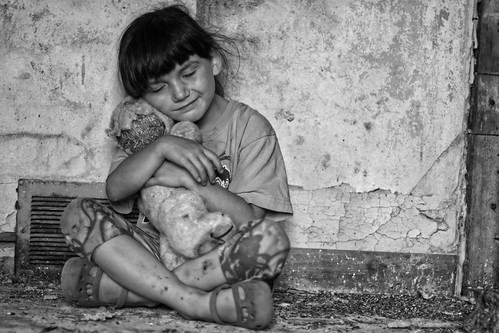

McNeney
Love
I was never happier than when I was dirty, if truth be told, good mud can still do plenty to fix my mood. Days spent exploring messy, dusty, rusty, muddy, buggy, dirty places are my happiest childhood memories. Those are the places that allow children to build themselves. Dirt is an escape from the rules and uniformity of schools where the best most can hope for is a box-table full of special clean sand.
My teething babies chewed on sand. My kids scrabbled headfirst through overgrown forests. Dirt stuck to their skin and came off with their kisses. They kissed some frogs, and also toads and worms. Their favourite toys were soft, saggy and imperfect. Feral and clever, they caught crickets, to take to show and tell.
Dirt and brokenness have become synonymous with poverty and hopelessness, so we keep our children clean and give them sterile, plastic toys. This child is as dirty as any of the children of penniless migrant workers who Dorothea Lange photographed in the dustbowl era, but this child is not barefoot, wearing ill-fitting rags, nor is she all starving, skin and bones. Deprived children are often dirty, but not all dirty children are deprived. This looks to me like a moment of pure contentment. As McNeney wisely says “Love does not care about dirt.”
Blog photograph copyrighted to the photographer and used with permission by utata.org. All photographs used on utata.org are stored on flickr.com and are obtained via the flickr API. Text is copyrighted to the author, Rachel Irving and is used with permission by utata.org. Please see Show and Share Your Work
